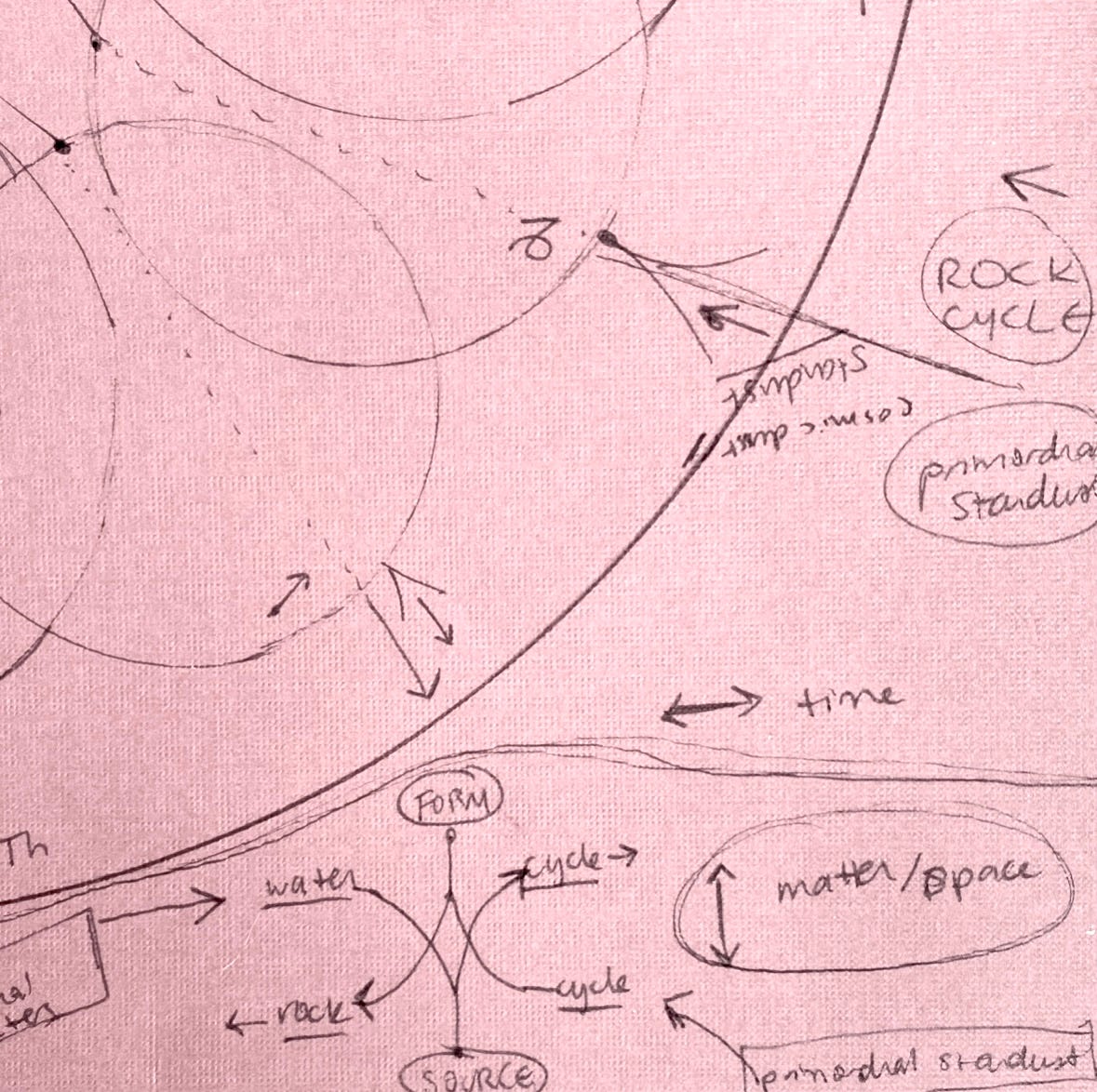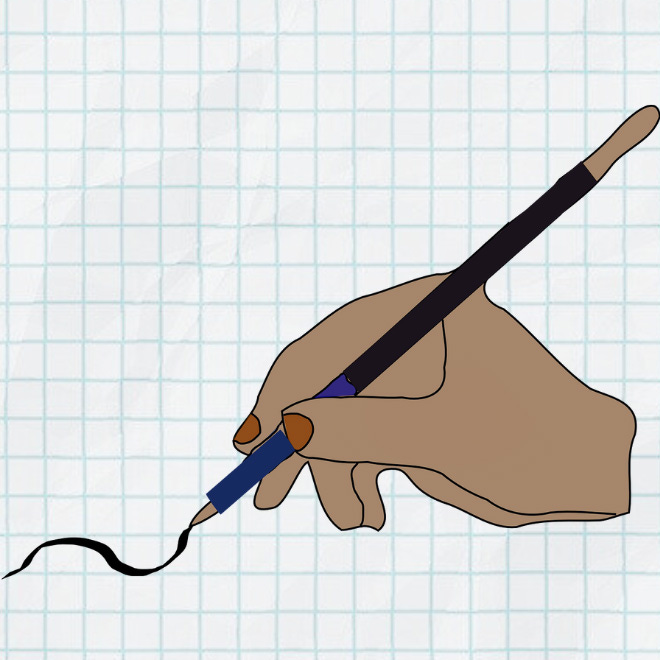The act of naming initiates us into the creative process. (Photo and sketch by Margy Thomas)
Throughout my pregnancy, the central question swirling in my anxious thoughts wasn’t about health, money, or career. All of those would’ve made practical sense to worry about. But instead, what preoccupied me most was a narrative concern: What would be the baby’s name?
The question haunted me for months because it forced me to confront the deep feeling I had of being unworthy to create. Who was I to bring a perfect new human into this imperfect world? Who was I to make anything at all?
Eventually, a kindhearted colleague intervened by sharing with me a poem, “Choosing A Name,” by Anne Ridler. The speaker, a new mother, addresses her newborn baby with these words: “Even as the gift of life / You take the famous name you did not choose / And make it new.” Of course! The answer to my struggle had been right there all along. In order to find the power to name my child, all I had to do was recognize that the power was not my own.
Anything we create — humans, scholarship, works of art — merely moves through us on its way into the world.
The same creative power that generated the universe and sustains it every moment flows through each of us. The act of naming our creations is how we recognize that power at work in us and say yes to it. The worthiness to create isn’t earned or achieved. It is inherent in the fabric of reality.
The names we choose can remind us of what we believe, care about, and hope for. Names can be public or private, and they can apply to parts or whole.
Titles are public names whereby we invite others to engage with our creations.
Neologisms are new names we coin for concepts or objects in our work that we hope others can use in novel ways.
Nicknames are private monikers that remind us what we’re creating and why.
The title I gave to my body of work a decade ago is ScholarShape, evoking my core hypothesis that the deep structures of the universe are our surest guide in creating new knowledge. The neologism Story-Argument refers to the deep structures themselves. While both names have pragmatic public uses, their private meanings are dearest to me, like affectionate nicknames that remind me we belong together.
For my baby, Abraham is the name I chose. It means “father of multitudes,” and it evokes themes of common ancestry and faith in a larger story. The name feels like a promise that the whole world and everything in it are a great work in progress, and that we all have a role to play in its completion.
All three names I’ve chosen, it turns out, have similar meanings to me.
For this #AcWriMoment, turn your attention to a name you’ve chosen for your body of work or a piece of it. In your journal, in your imagination, or in conversation with a friend, reflect on these questions:
What meanings does the name hold for you? How has the name guided your writing process, or how could it guide your process? Might another name be waiting to be chosen by you? Guided by a name you have chosen, what is one small step you can take in your work today?
When I chose the name “ScholarShape” for my body of work back in 2013, its public face was an academic editing business. On the ScholarShape website, you can see the work’s present incarnation. While you’re there, check out the free Scholar Magic course to uncover your unique scholarly purpose.
Margy Thomas, creator of ScholarShape
For more scholarly writing inspiration, check out these resources from the curators of #AcWriMoments:
ScholarShape by Margy Thomas
WriteSPACE by Helen Sword








I love this post so much, Margy! I’ve been reflecting on my obsession with titular acronyms and wordplay while working on my next post for my Substack newsletter, Helen’s Word (both an acronym and a pun!)
The Long Body -- what a concept! Both spatial and temporal, like spots of time. Beautiful!